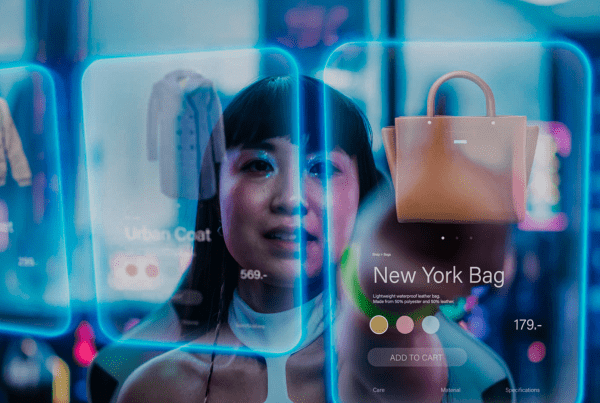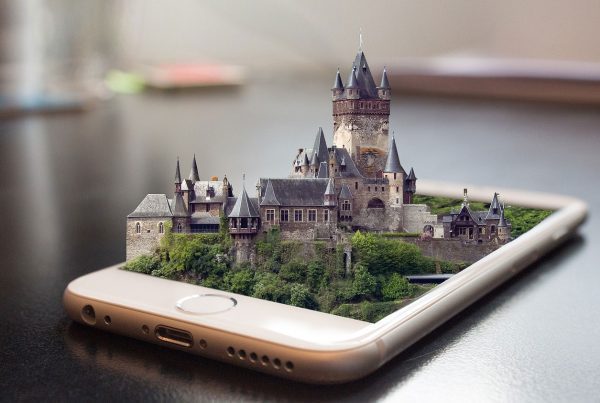
Pauliny Zito
– Planner, copywriter and copydesk –
The metaverse will transform – and is already transforming – countless sectors. Brands such as Nike, Gucci, and Prada are already creating exclusive collections for the metaverse. Even the basketball team, Brooklyn Nets, is planning actions to offer its fans immersive virtual experiences within the metaverse.
The growth of augmented reality technology, driven by the metaverse, was noted in a report and released by the British daily, The Guardian, in late 2021 as one of the key trends for the digital world in 2022, along with NFTs (Non-Fungible Tokens, in Portuguese), and the independent games market, following the success of games like Among Us during the pandemic.

Pauliny Zito
– Planner, copywriter and copydesk –
The metaverse will transform – and is already transforming – countless sectors. Brands such as Nike, Gucci, and Prada are already creating exclusive collections for the metaverse. Even the basketball team, Brooklyn Nets, is planning actions to offer its fans immersive virtual experiences within the metaverse.
The growth of augmented reality technology, driven by the metaverse, was noted in a report and released by the British daily, The Guardian, in late 2021 as one of the key trends for the digital world in 2022, along with NFTs (Non-Fungible Tokens, in Portuguese), and the independent games market, following the success of games like Among Us during the pandemic.
What is the Metaverse?
“Metaverse: Part gaming ecosystem, part virtual lifestyle platform, the metaverse is a collection of digital worlds that are interoperable, in which users can create content and interact with others as avatars or digital versions of themselves.”
The concept of the Metaverse was created by science fiction writer Neal Stephenson in 1992 in his novel Snow Crash. He was even the one who came up with the name Metaverse.
“A virtual world that tries to reproduce reality, from digital devices. A space that combines immersive reality and the internet.”
Chris Cox, CPO of Meta, believes that “the Metaverse is the new age of the internet, in multiple dimensions”.
 Source: freepik
Source: freepik
In a nutshell, the metaverse is any virtual reality environment.
A kind of digital parallel reality (or universe) of the real world, where people will interact and perform various activities, through avatars – digital replicas produced by Artificial Intelligence (AI), a virtual twin brother, or simply their “virtual human” version, whose immersive experience will be constantly enhanced in the coming years.
In the article The Metaverse Value-Chain published by Jon Radoff, he describes the seven layers of the metaverse, according to the image below:
 Source: Jon Radoff published in this article
Source: Jon Radoff published in this article
According to Radoff, the ideal structure of the metaverse is to be decentralized rather than owned by a single company, with various systems operating in an integrated way, sharing avatars, NFTs, and other objects, all registered in blockchains.
Regarding the human interface needed to access the metaverse, today the most popular are 3D glasses, such as Meta’s Quest 2, however, we will also have smart glasses, augmented reality contact lenses, and even neural interfaces.
Artificial Intelligence Market
The AI market is expected to move around €178 billion by 2025 in the world. AI has been part of the business and strategic decisions of companies and startups and goes far beyond technology, acting in the dynamics of several areas and sectors in the same company. Not to mention other concepts and technologies that are concerned about AI, such as metaverse and NFTs.
How will the Meta account work?
From August 2022, it will be possible to have an account on Meta. For now, you will not need to have a Facebook account, but you will need to create a profile on Meta Horizon, which will be your social profile in Virtual Reality (VR).
However, it should be stressed that the Meta account is not a social networking profile.
There will be three privacy options to choose from: Public (open to all), Friends and Family, and Private (user only). People aged between 13 and 17 will have their Meta Horizon profiles private by default.
 Source: Meta website
Source: Meta website
You can create one Meta Horizon profile per Meta account; allowing you to register your VR devices and view and manage your purchased apps in one place. In addition, you can also add your Meta account to the same Account Centre as your Facebook or Instagram account, to unlock connected experiences across Meta technologies.
Your Oculus friends will become your followers. And, if you already own a Meta VR headset, Oculus will automatically become your followers and your profile will follow back, by default. Of course, you can unfollow or delete followers whenever you wish.
Who is already in the Metaverse?
Make no mistake, the metaverse is not only for large technology companies. Below, learn about examples of companies, people, and even a city that is already “surfing the new wave”.
Siemens and VIDIA
 Source: AdNews, article of 30 June 2022
Source: AdNews, article of 30 June 2022
Siemens and NVIDIA are teaming up to enable industrial metaverse and increase the use of AI-driven digital twins technology. The companies plan to connect Siemens Xcelerator, a commercial open digital platform, and NVIDIA Omniverse™, a 3D design and collaboration platform. This will enable an industrial metaverse with physics-based digital models from Siemens and real-time AI from NVIDIA, in which companies make decisions quickly and with more confidence.
The addition of Omniverse to the open Siemens Xcelerator partner ecosystem will accelerate the use of digital twins, which can deliver productivity and process improvements across production and product lifecycles. Companies of all sizes will be able to employ digital twins with real-time performance data; create innovative industrial IoT (Internet of Things) solutions; leverage actionable insights from analytics at the edge or in the cloud; and address the engineering challenges of tomorrow by making visually rich, immersive simulations more accessible.
Gucci Town
Gucci has created immersive experiences on the Roblox platform. The digital space features gardens, virtual cafés, an art exhibition, mini-games, and a boutique where players can buy clothes and accessories to dress their Roblox avatars.
According to the brand’s website, “Gucci Town is a place to discover more about the House and its heritage alongside Alessandro Michele’s creative vision, as well as to express your individuality and connect with like-minded individuals around the world.” The Gucci metaverse also features GG Gems, a digital currency to purchase power-ups and digital objects in the game.
 Source: Gucci website
Source: Gucci website
Blockchain Game by Epic
The Epic company will distribute its first blockchain game this year. GRITT, a battle royale set in the Old West, is being developed in partnership with startup Web3 and game publisher Gala Games. It’s the first play-to-earn to hit the Epic Store, which will bring a certain legitimacy to this new genre of games – which, for now, generates a certain amount of distrust from gamers and investors (particularly because of the instability in the cryptocurrency markets).
Epic CEO Tim Sweeney is an optimist of the digital goods economy and how video games will play a key role in establishing new paradigms within the metaverse.
 Source: Gala Games/Disclosure
Source: Gala Games/Disclosure
Paris Hilton at Paris World
 Source: Reproduction/CNN
Source: Reproduction/CNN
In April, Paris Hilton attended Paris World, Hilton’s virtual experience on the popular gaming platform Roblox. Almost 400,000 Roblox users visited her virtual Neon Carnival that mid-April weekend, about 40 times the number of people who went to the event in real life this year, according to Hilton herself. The digital event was sponsored by Levi’s and designed in part by Brent Bolthouse, the founder of the original Neon Carnival. At Paris World, users can also buy virtual clothes, book a jet-ski ride or pay to access a VIP club session.
The socialite is already a tech entrepreneur. Hilton has invested in several tech companies, including backing digital avatar startup Genies and animation app immi, which allows some NFT owners to bring characters to life in their digital artwork. She also bought a Bored Ape Yacht Club NFT, an expensive and highly sought-after collection that has attracted celebrity buyers. She has also created her NFT artwork. One of her latest NFT pieces, called Iconic Crypto Queen and created in collaboration with popular NFT artist Blake Kathryn, sold for $1.111 million – a reference to 11:11 Media, Hilton’s new company named after her favorite time of day.
Metaverse Seul
The Korean city of Seoul will soon launch Seoul City Square, a virtual project with environments for events in augmented reality. Metaverse Seoul will be led by the Seoul Institute of Technology (SIT) in partnership with the local government. Users will be able to create their avatars and access the virtual environment, where they will have real-time information about the temperature, weather, and air of the real city. The idea is also to offer cultural experiences and various city services.
The Next Level website underlines that Seoul is already one of the most connected cities in the world, with more than 95% of its ten million inhabitants connected to 4G or 5G services. In addition, the city council offers an extensive network of free Wi-Fi with more than 100,000 access points.
 Source: Próximo Nível, article of 26 May 2022
Source: Próximo Nível, article of 26 May 2022
Lego
By the end of 2023, Lego plans to increase from 400 to 1,800 employees dedicated to building its virtual world. The company has set up a technology hub in Denmark, but the new employees will also help on the software side in London and Shanghai. Even “analog”, Lego’s revenues are still up, but it is looking to significantly improve its results when it launches its metaverse.
Children’s metaverse
Lego and Epic Games have announced a long-term partnership to shape the future of the metaverse: building an immersive, creatively inspiring, and engaging digital experience for children of all ages. The goal is to make the metaverse a safe, positive, and fun space for children through a familiar digital experience that provides tools and thus makes them creators in this space.
Live Forever
What if you could see people you love again, but who have already passed away? That’s the proposal from Somnium Space, which is developing a way for people to converse with their deceased loved ones by creating a digital, metaverse version of them. The Live Forever feature allows people to have their movements and conversations stored as data and then duplicated as an avatar that moves, speaks, and sounds exactly like them, which can continue to “exist” – in the metaverse – long after their death. The idea came from the personal experience of Artur Sychov, CEO and founder of the company.
Qatar Airways QVerse
 Source: Qatar Airways website
Source: Qatar Airways website
Qatar Airways’ new virtual reality experience is virtual boarding, which lets you get a chill in your stomach when checking in and boarding the plane for travel. Qverse, launched on the metaverse, can be accessed for free through the airline’s website. In the virtual environment, passengers can experience virtual boarding in first and business class at Hamad International Airport (HIA) in Doha (Qatar).
Metaverse Hype
According to the vision of consultancy Gartner, by 2026, 25% of people will spend at least an hour a day in the metaverse – working, shopping, studying, chatting with friends, or entertaining themselves. In the Metaverse Hype study, the consultancy assesses that because no single vendor will own the technology, it will have a virtual economy enabled by digital currencies and non-fungible tokens (NFTs).
“The metaverse will impact every business that consumers interact with every day. By 2026, 30% of the world’s organizations will have metaverse-ready products and services,” he predicts.
Absolut.Land by Absolut Vodka at Coachella Festival
 Source: AdNews, article of 12 April 2022
Source: AdNews, article of 12 April 2022
Drinks brand Absolut Vodka brought Coachella into the metaverse in a mix of virtual and real-life experience marketing, recreating its festival experience in Decentraland by allowing interaction between players and festival attendees.
Absolut. The land featured three floors with ten interactive elements, allowing players to collect NFT wearables, receive discount codes for cocktail kits and possibly win tickets to the second weekend of Coachella, which took place from April 15-24. Real-life festival attendees were able to create their avatars at kiosks, gift NFT wearables, and “try them on” using QR codes. The double event also celebrated 10 years of Absolut as the official vodka of Coachella.
JPMorgan
The Decentraland metaverse now boasts another big name: JPMorgan. The world’s largest bank by market value has opened its own space within the venue and created a report on the technology. In 2021, for example, $54 billion was spent on virtual goods, more than double that paid in the music sector. The document also points to the more than 200 partnerships made by The Sandbox, including with Warner, which plans to open a virtual concert space. The bank has always stressed the numerous business opportunities within this digital environment, the popularisation of Virtual Reality (VR) and Augmented Reality (AR) devices to access the space, as well as the growth in interest in crypto-activities, especially NFTs.
McDonald’s
O McDonald’s has taken its first step into the metaverse. The fast-food chain has homologated a patent application for virtual assets. One of the items is “a virtual restaurant that includes both real and virtual products”, according to the description. In all, ten items were listed to have their patents in the virtual version. Several other brands have already started to approve patent registration for virtual items. In the case of McDonald’s, however, there is the intention to more clearly integrate the virtual with the real, namely home delivery.
Among other possibilities is the creation of virtual art, audio, and video files, besides NFTs. The network also included the McCafé brand in the application and the intention to offer online concerts and virtual experiences to its consumers.
Disney
Disney is creating its metaverse via a “virtual world simulator” (already patented) that will project 3D images and virtual effects into physical spaces. The project will track individual visitors within the park to personalize these projections.
“Our efforts so far are just prologued to a time when we will be able to connect the physical and digital worlds even more closely, enabling limitless storytelling in our own Disney metaverse,” said company CEO Bob Chapek.
 Source: Disclosure/Disney
Source: Disclosure/Disney
Boeing
Aircraft manufacturer Boeing wants to innovate. The company has a strategy to make its next plane fly through the skies of the metaverse by unifying its design, production and airline services operations into a single digital ecosystem.
Next year, Boeing wants to reassert itself as dominant in the market by building and connecting three-dimensional virtual replicas of the next jet and building a system capable of running simulations.
Urban land in the metaverse
According to the DappRadar blog, urban land in the metaverse will be in vogue in the NFT market: four blockchain-based metaverse projects generated $106 million in virtual land sales in the last week of November. The Sandbox and Decentraland projects are the standouts, amassing 96% of market sales.
The Metaverse in 2040
The Pew Research Center and Elon University Research Center asked 624 technology experts, namely technology innovators, developers, business and policy leaders, researchers and activists, to share their thoughts on the topic.
These professionals provided open-ended answers to a question seeking their predictions on the trajectory and impact of the metaverse by 2040.
This is a non-scientific survey, the results of which represent only the opinions of the individuals who responded to the consultations and are not projectable to any other population.
Some results:
- 54% of these experts said they expect that by 2040 the metaverse will be a much more refined and truly fully immersive aspect of daily life for half a billion or more people worldwide.
- A notable portion of these experts argued that the inclusion of augmented reality in people’s daily lives by 2040 will be centered around augmented reality and mixed reality tools, not the more fully immersive virtual reality worlds that many people define today as “the metaverse.”
- They warned that these new worlds could dramatically amplify every human trait and tendency – both the bad side and the good.
- None of these experts have any doubt that major changes are forthcoming in the way reality is complemented by technology or even reimagined in technology-enabled ways.
- A notable portion of these experts expects augmented reality applications to be more widespread
- Many interviewees who expect the AR/VR metaverse to be well developed by 2040 warned that this will significantly amplify the social challenges already present in the digital sphere.
Is it the end of reality?
Mark Zuckerberg believes that the metaverse can achieve technological singularity, meaning it won’t just be a location, as many people think, but rather an Age in which immersive digital worlds would become the main way in which people will live their lives and spend time.
Technology consultant Melanie Subin believes that a large proportion of people will be in the metaverse by 2030 and many of them will live most of their days connected.
In November last year, computer scientist Louis Rosenberg, a pioneer of augmented reality technology, warned that the metaverse could make reality “disappear”.
He fears that the overlap of information with the real world could grow to such an extent that it will impact essentially every aspect of life, preventing people from “disconnecting” from the system. Another problem, according to Louis Rosenberg, will be a potential labeling system, with information appearing above each person’s head, identifying their political and religious positions, among others.
If the metaverse aims to keep people submerged in this virtual reality, without any interruption, doing in the virtual environment everything we do today in the physical world, but more easily and conveniently, what will become of our reality?



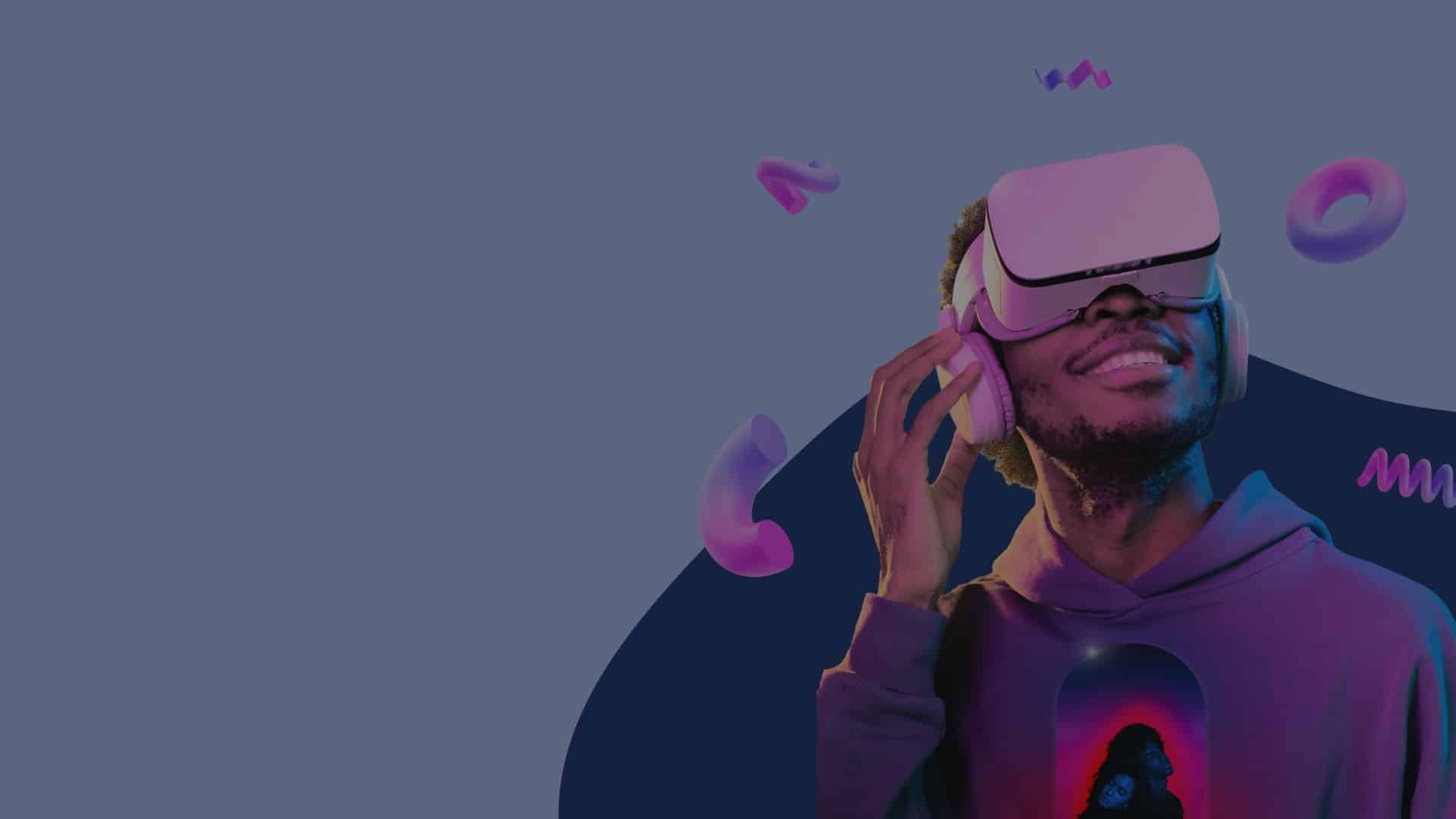
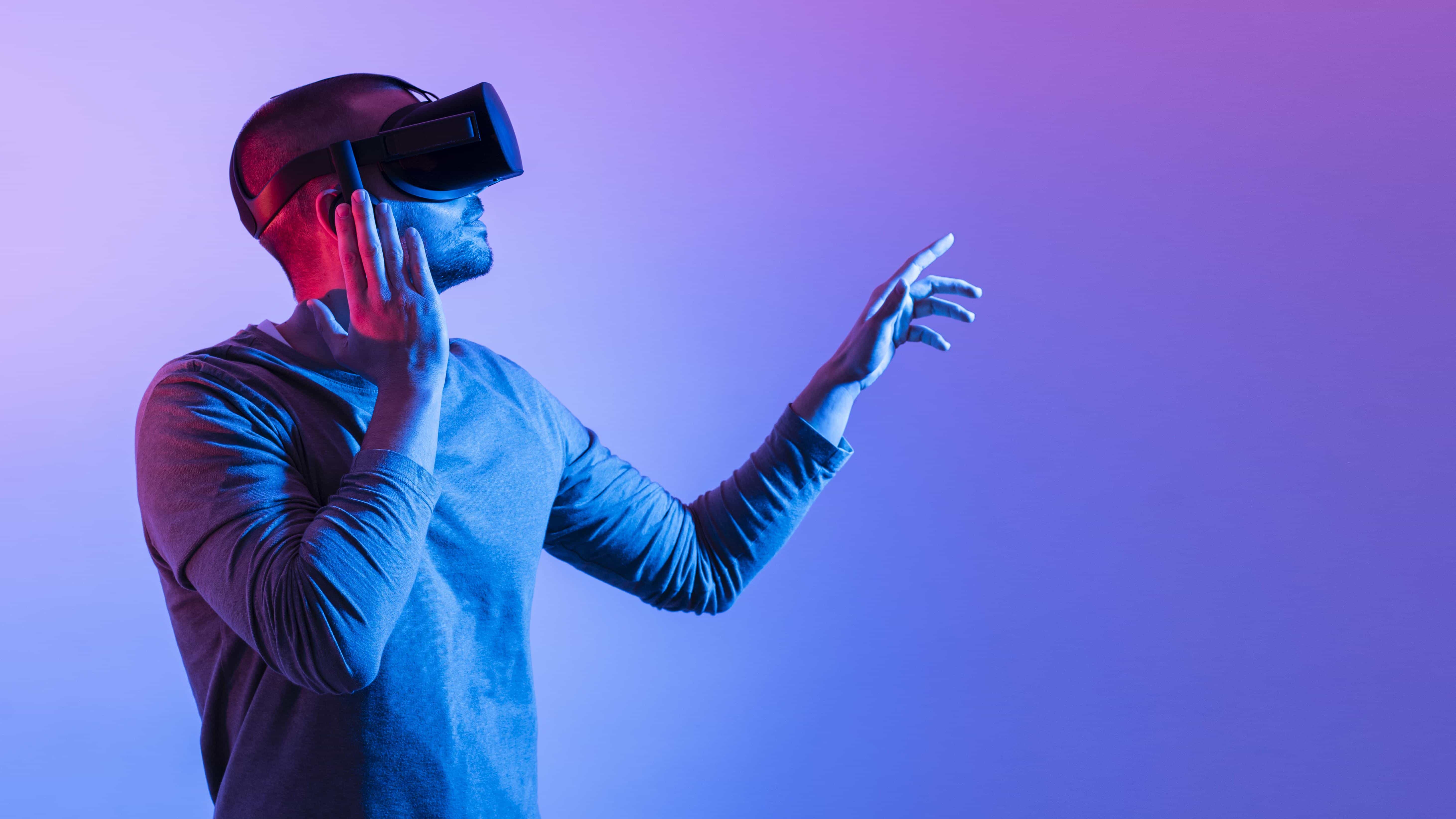
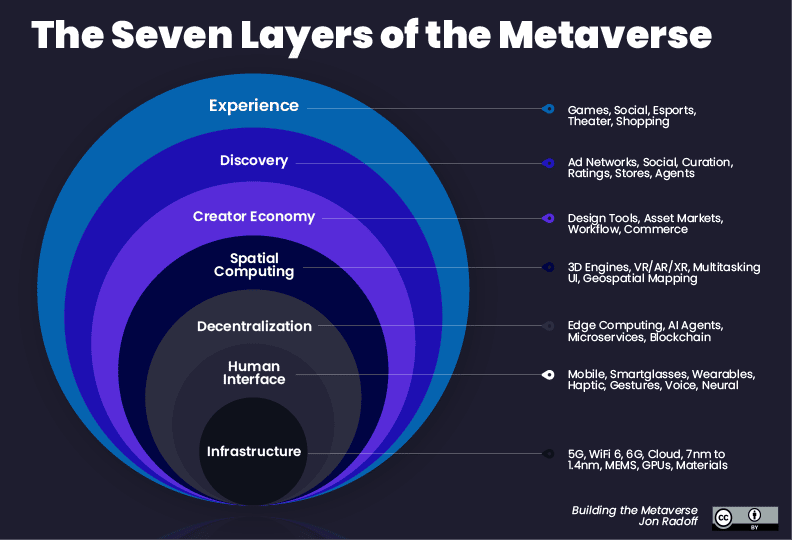
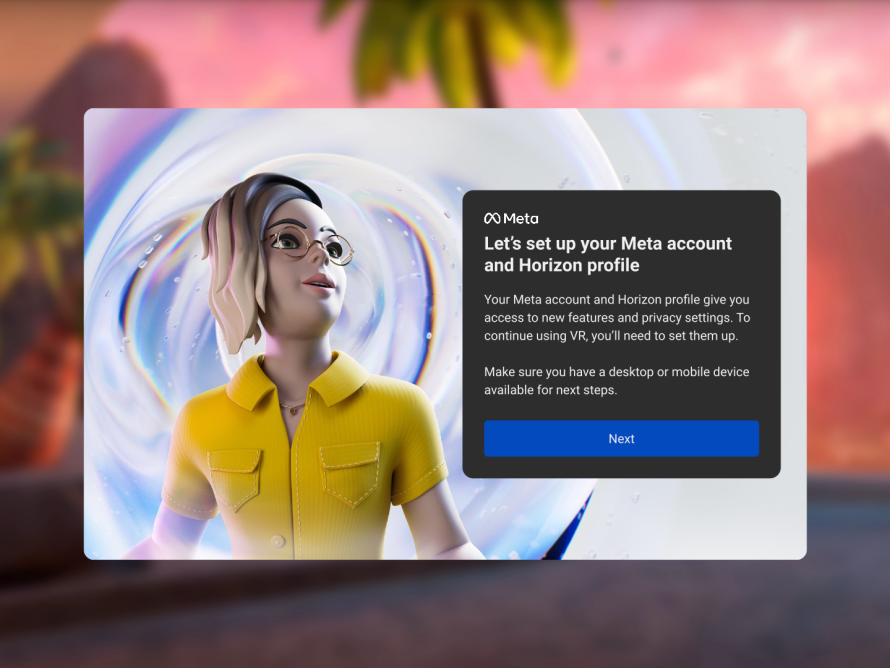
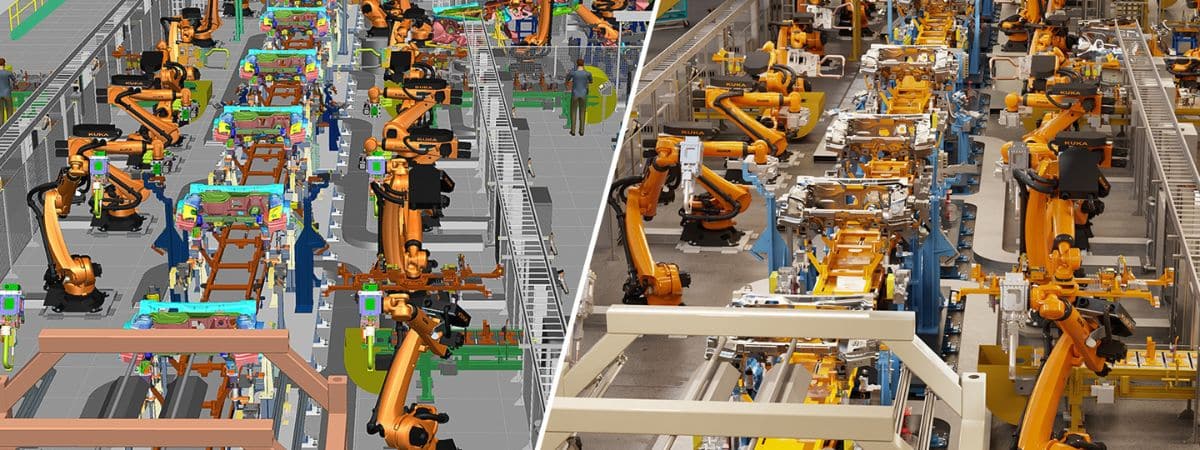
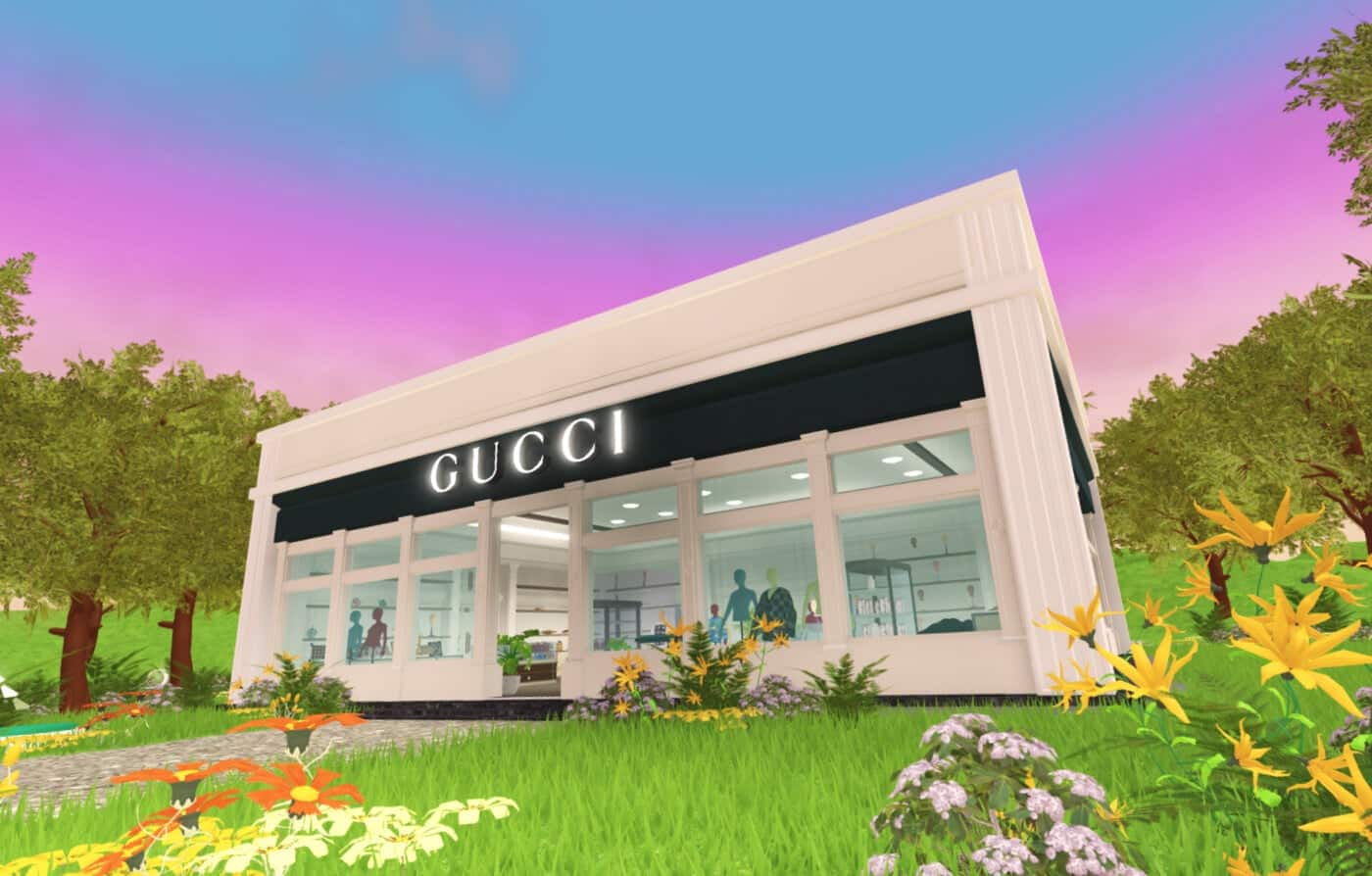 Source: Gucci website
Source: Gucci website


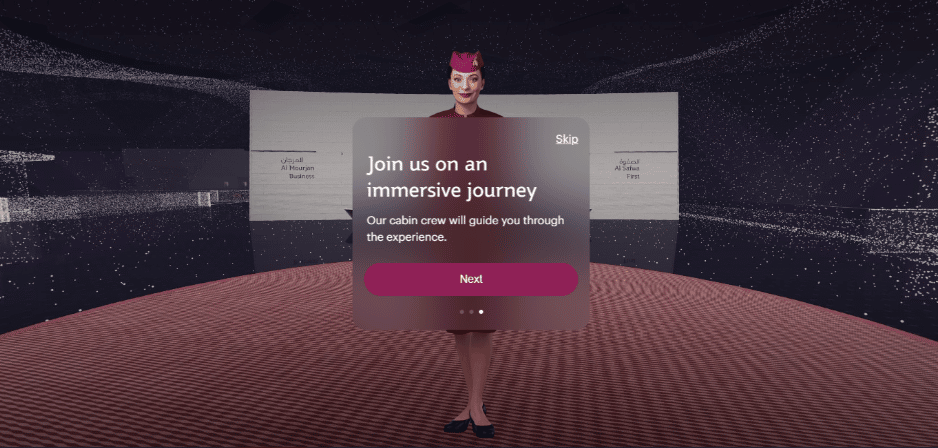

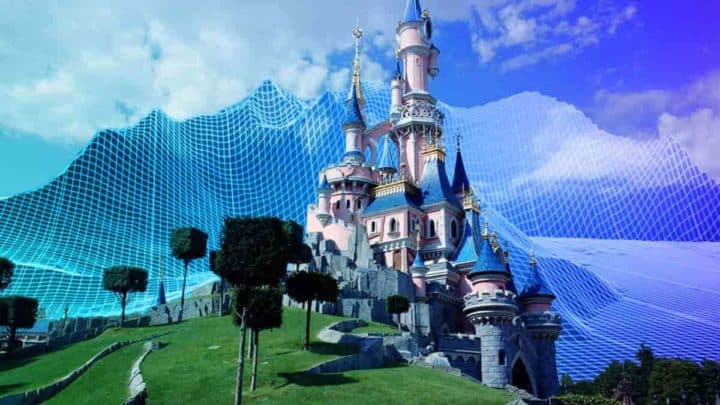 Source: Disclosure/Disney
Source: Disclosure/Disney